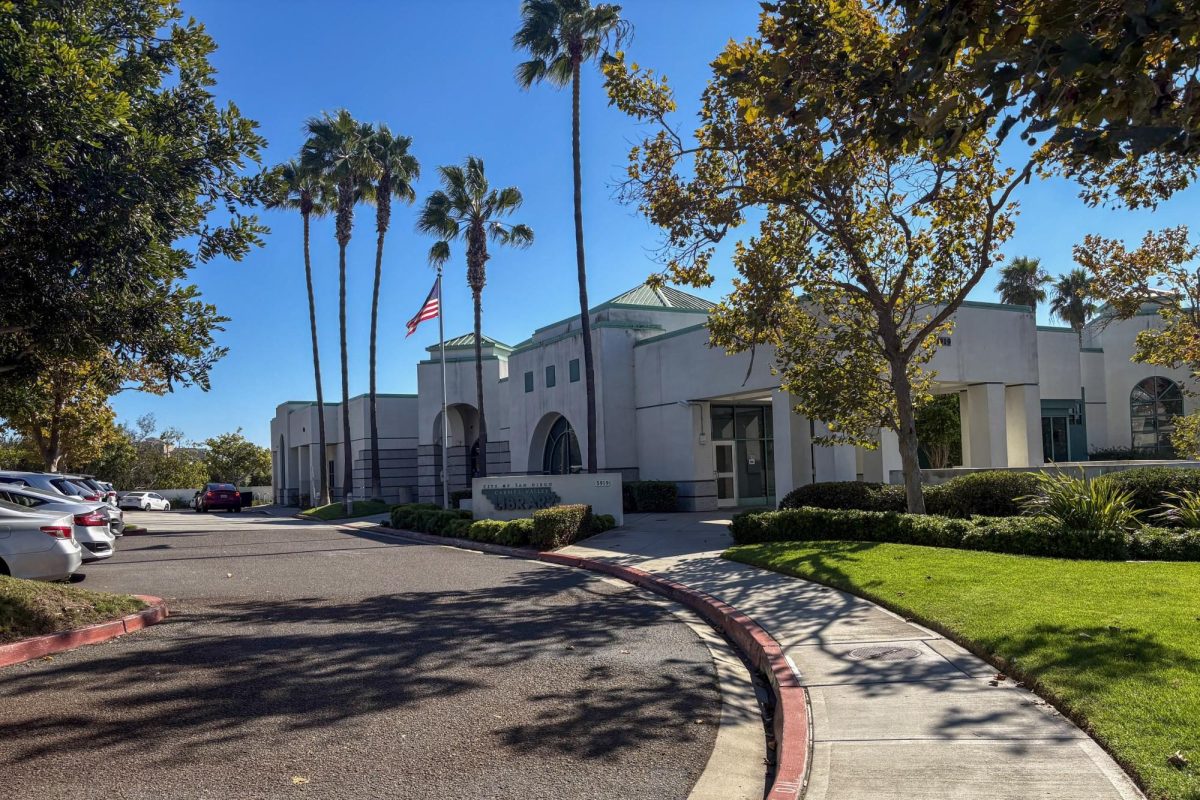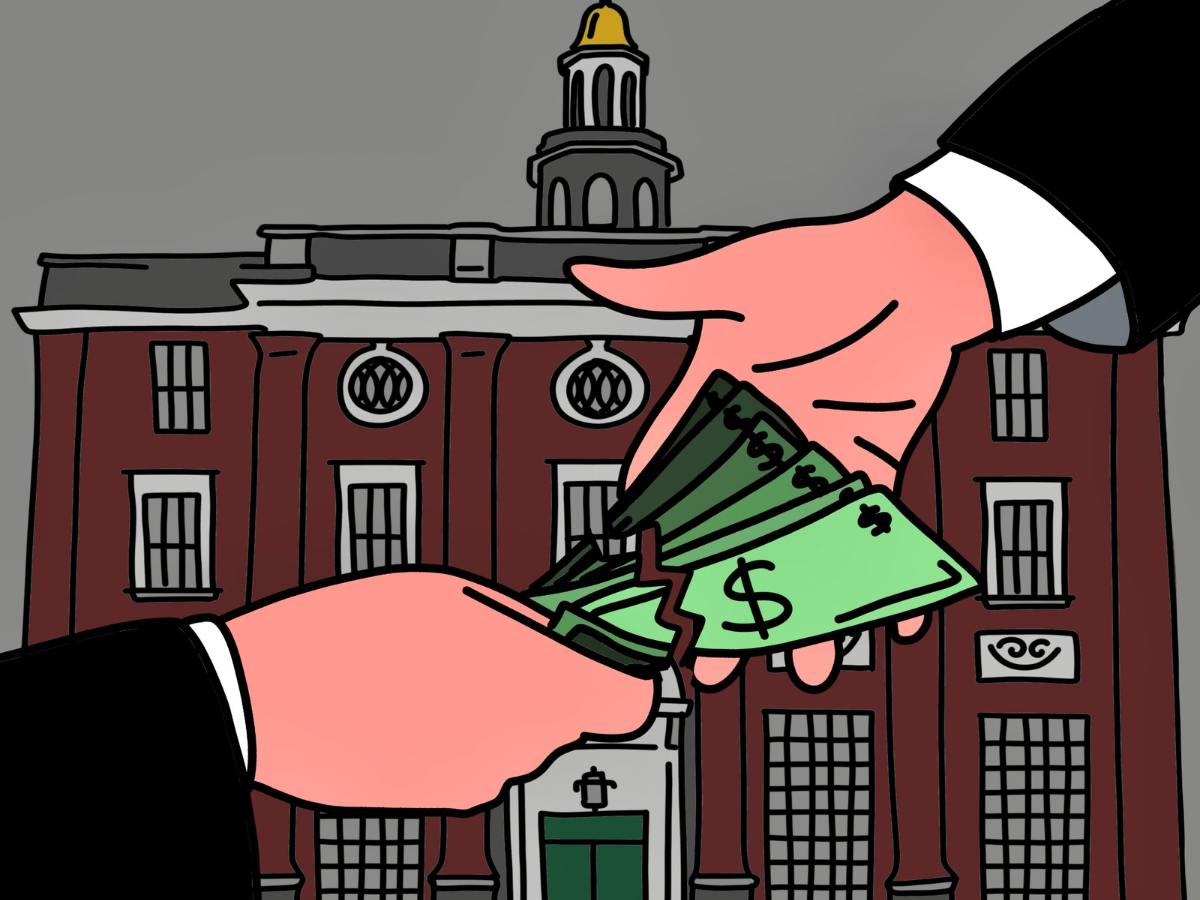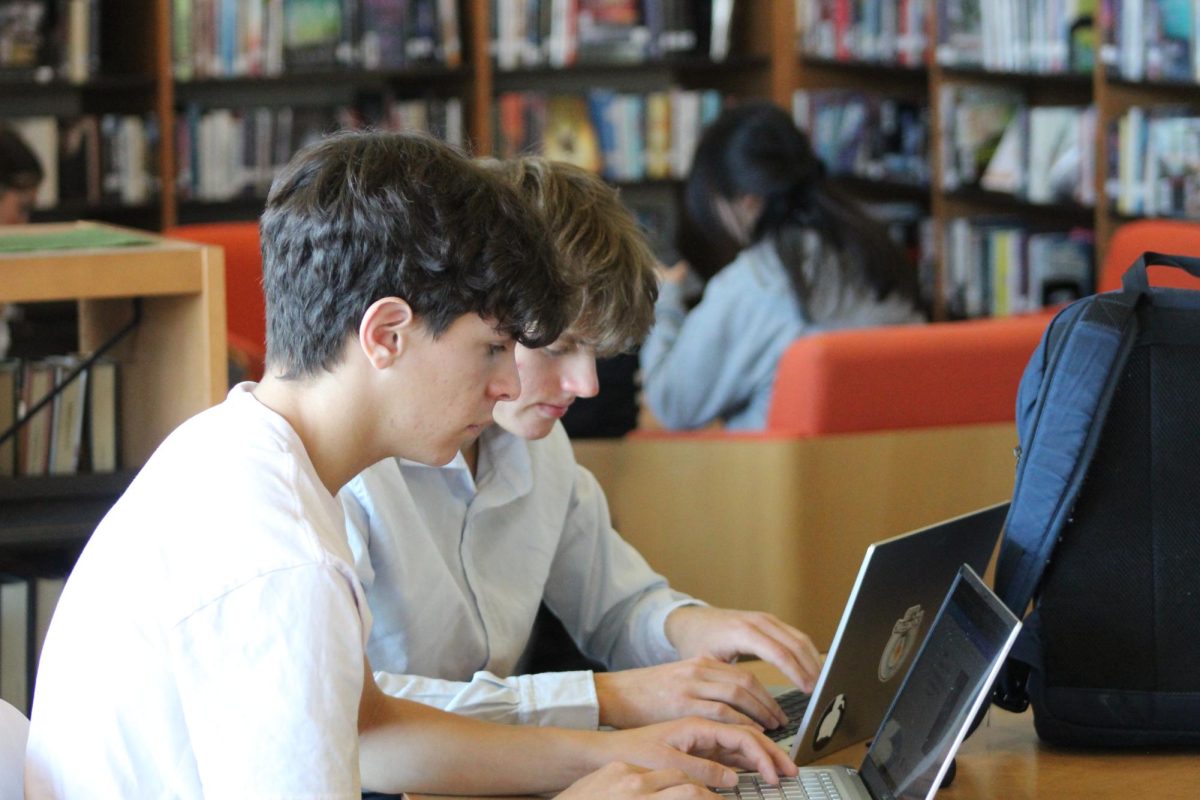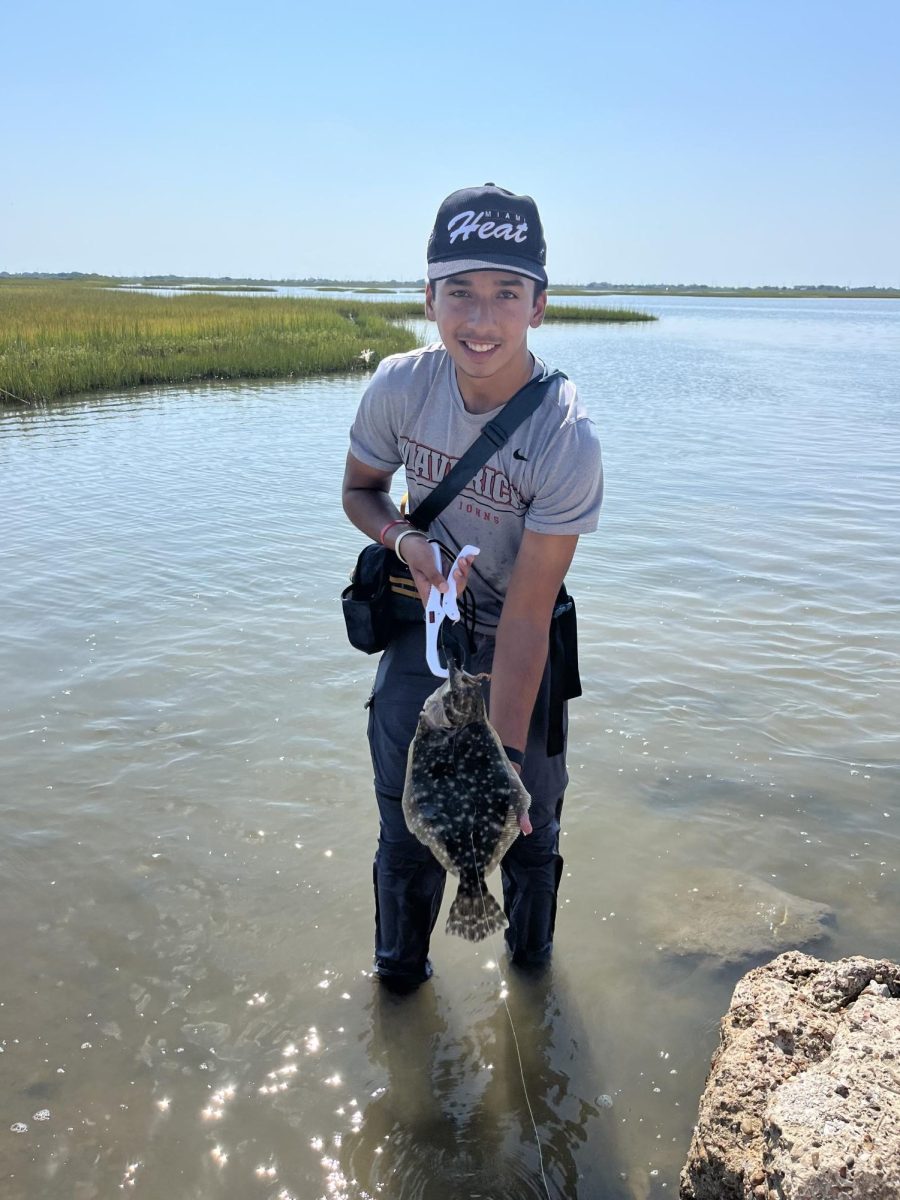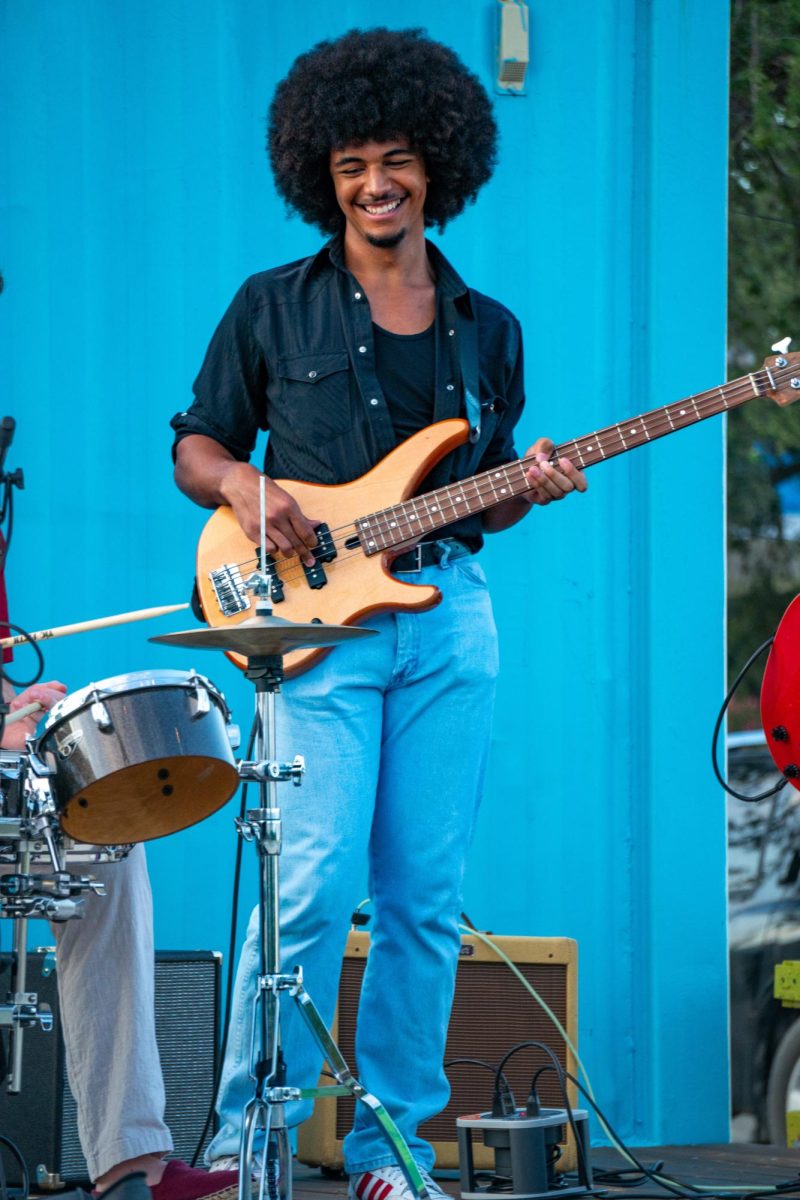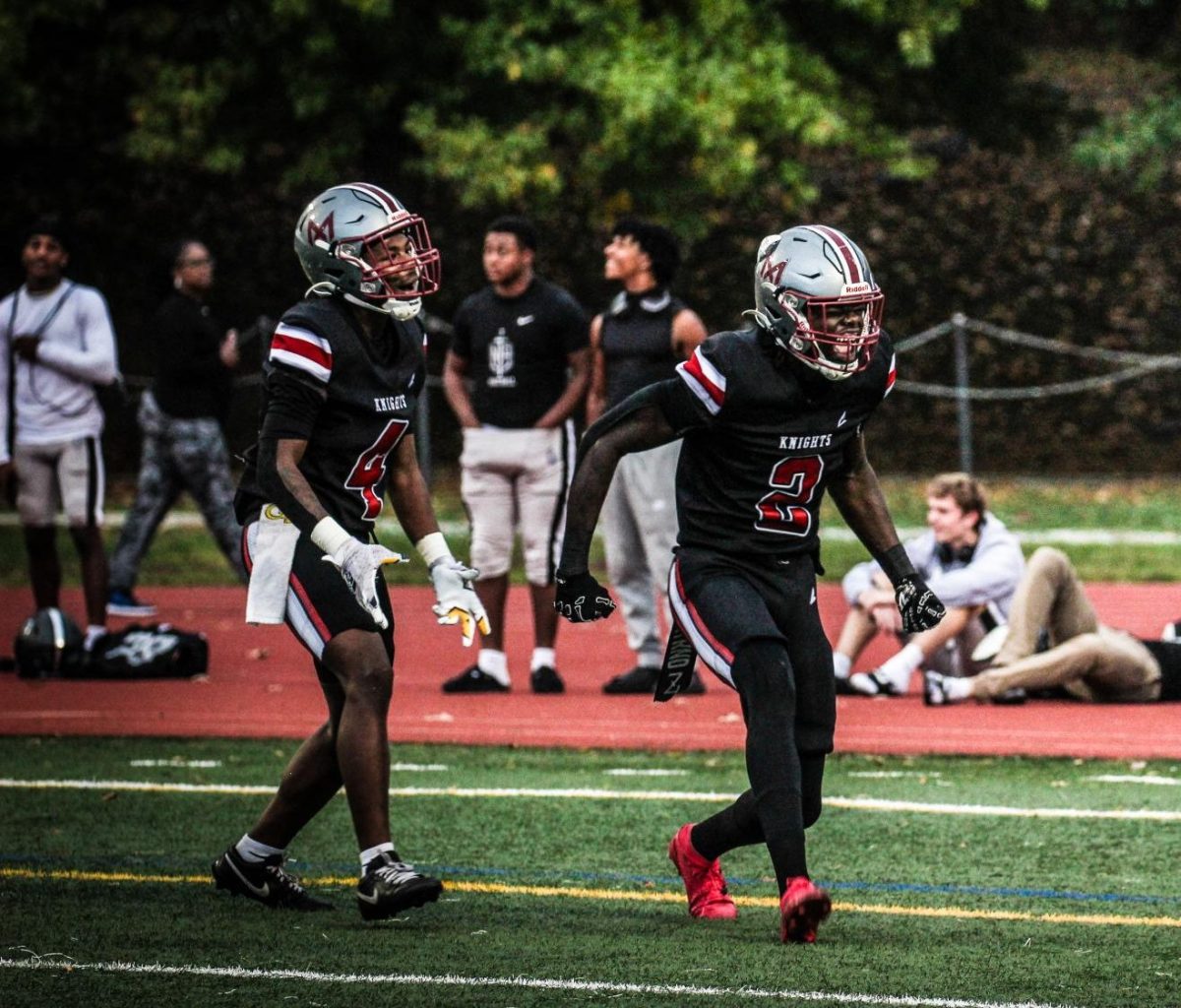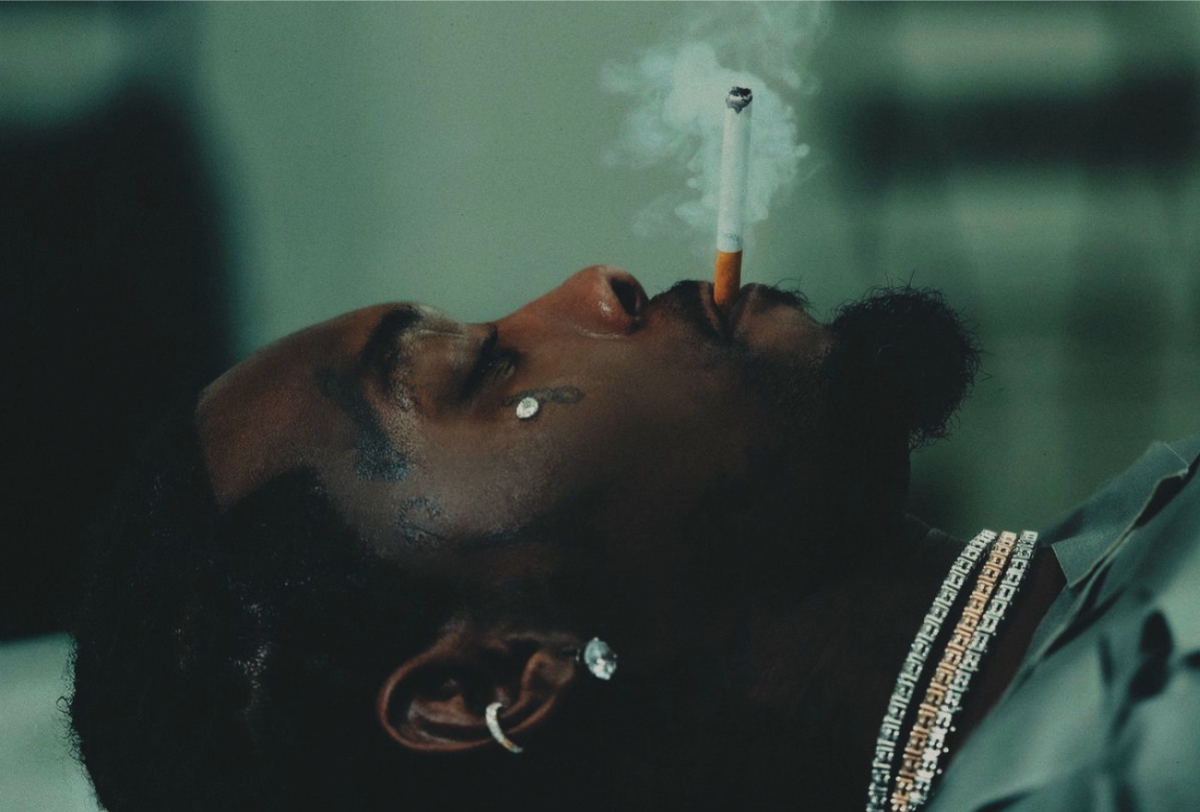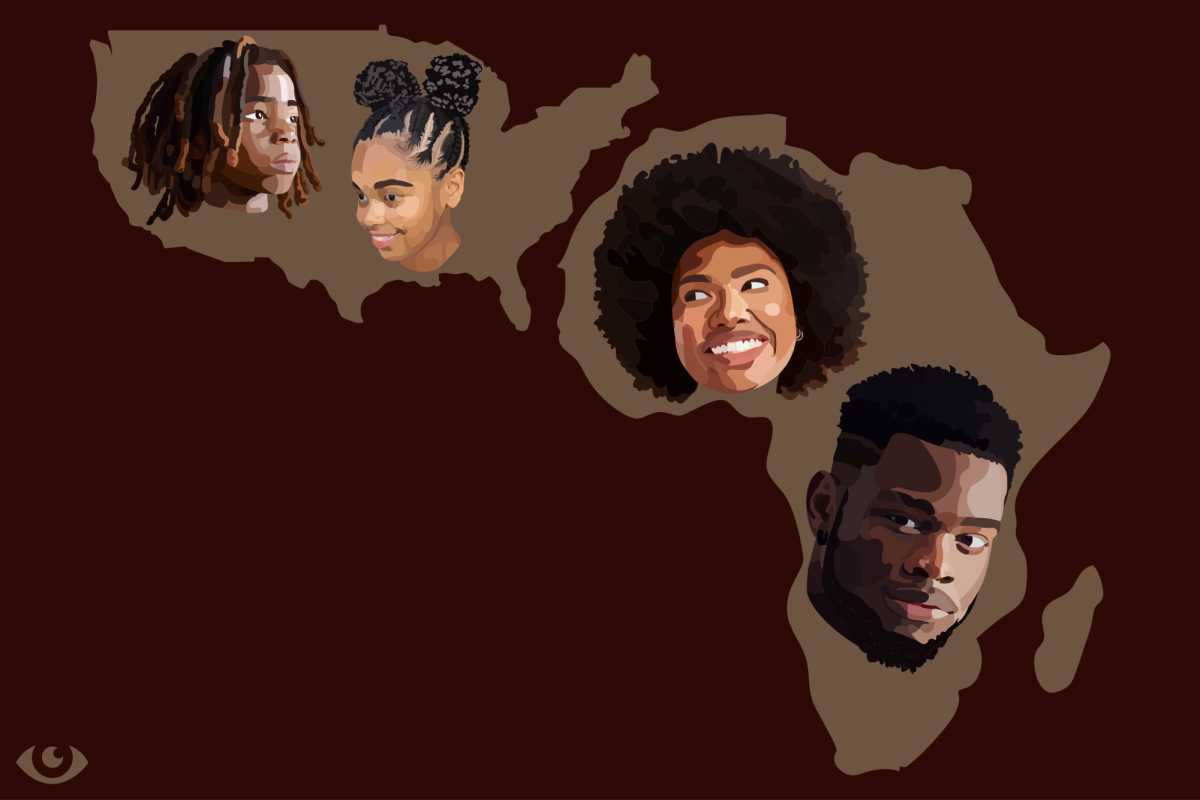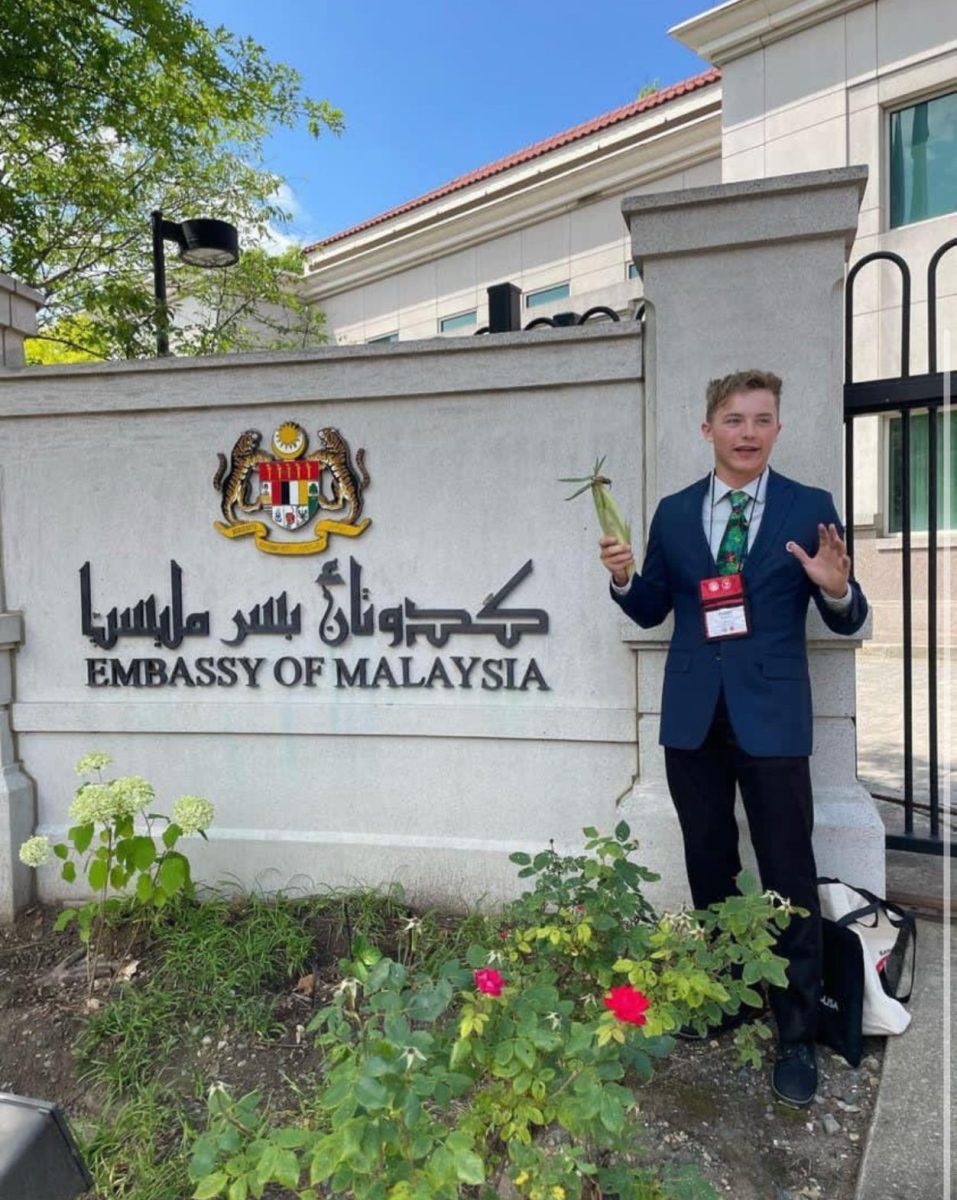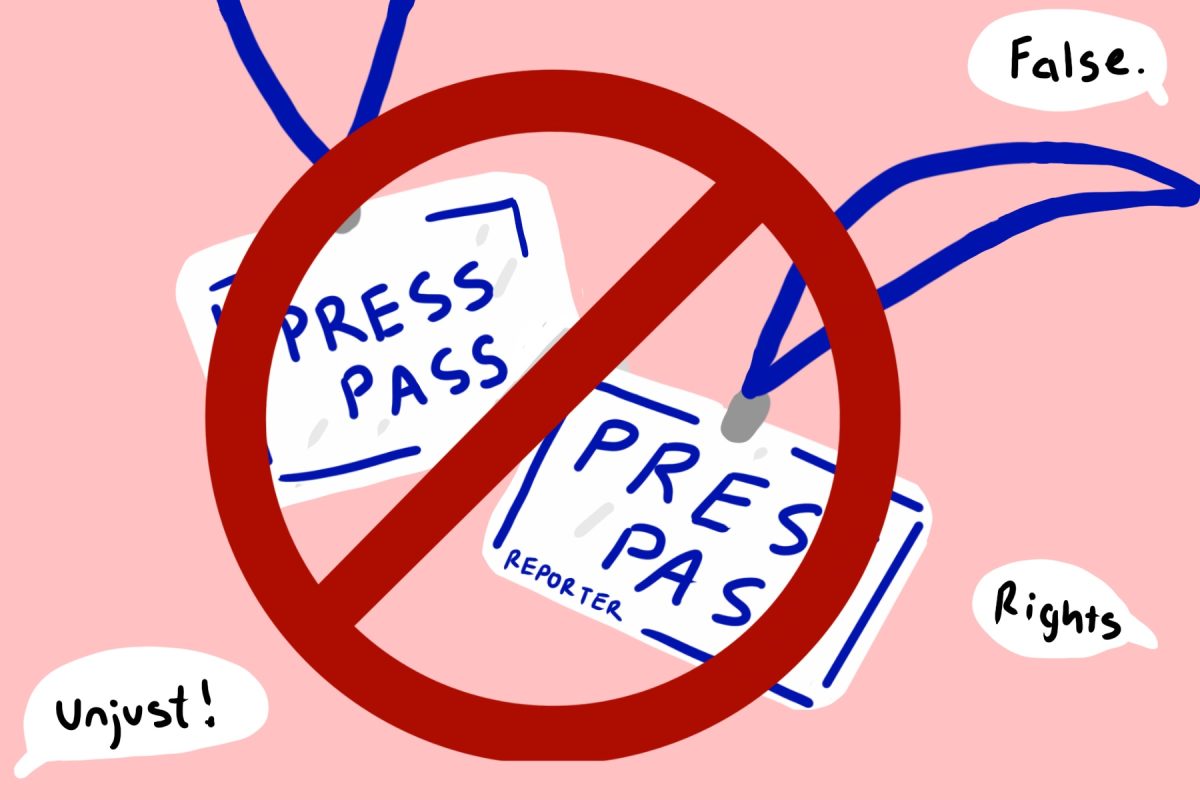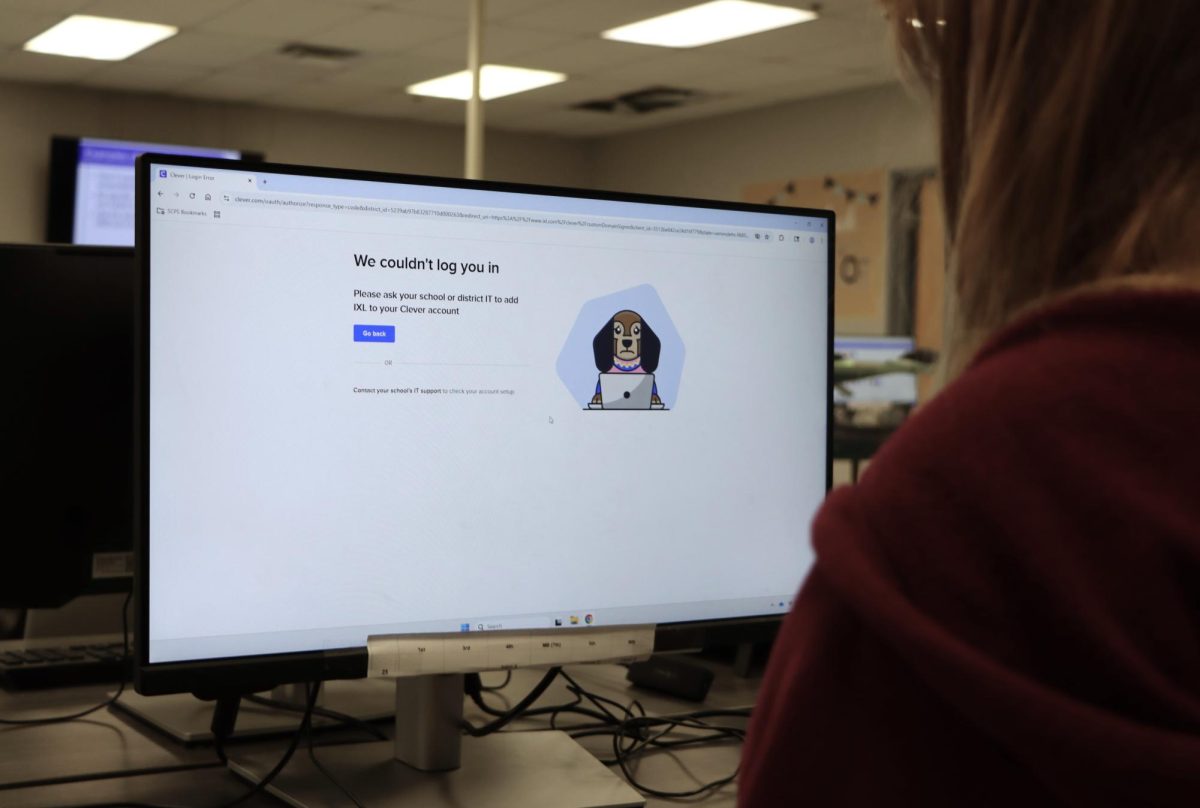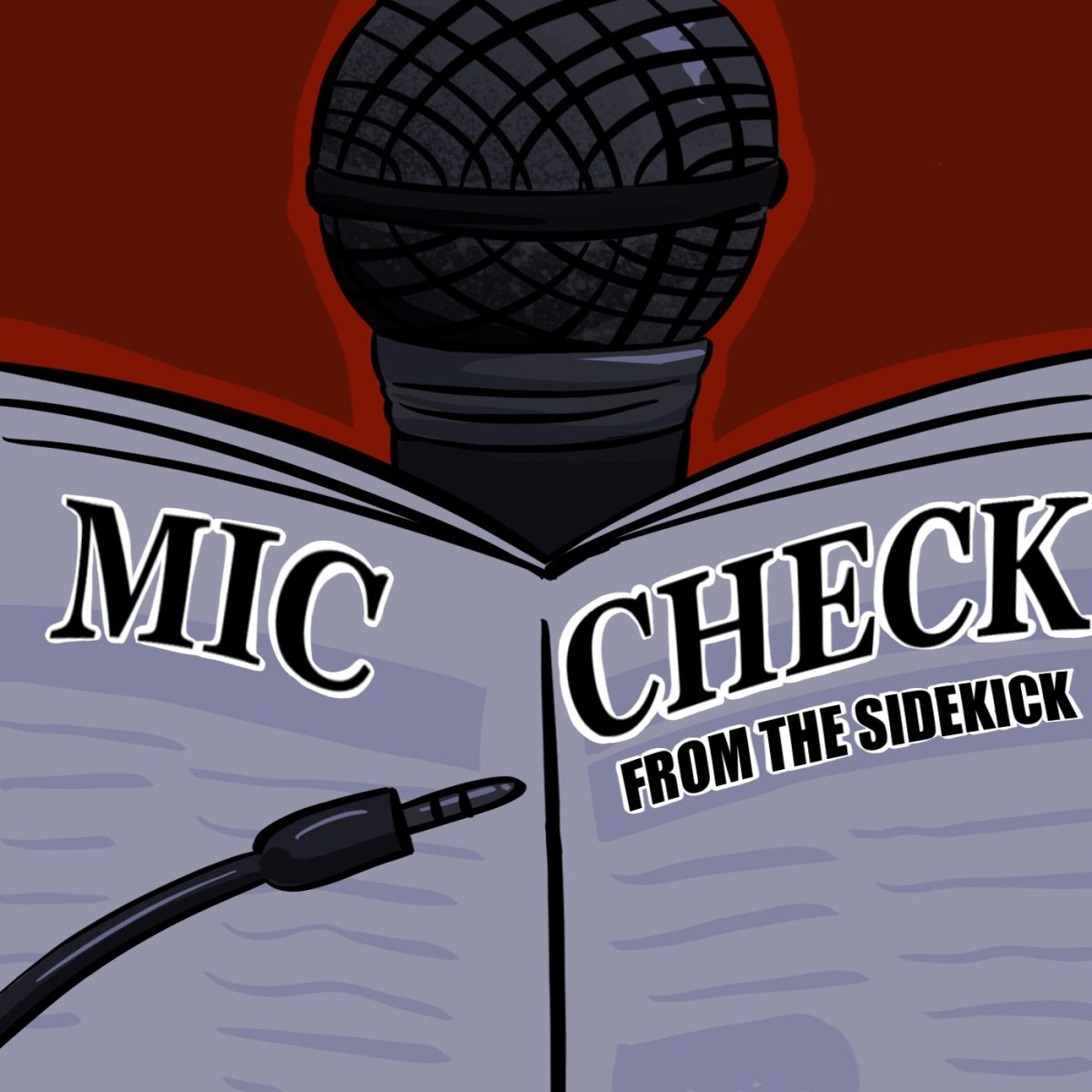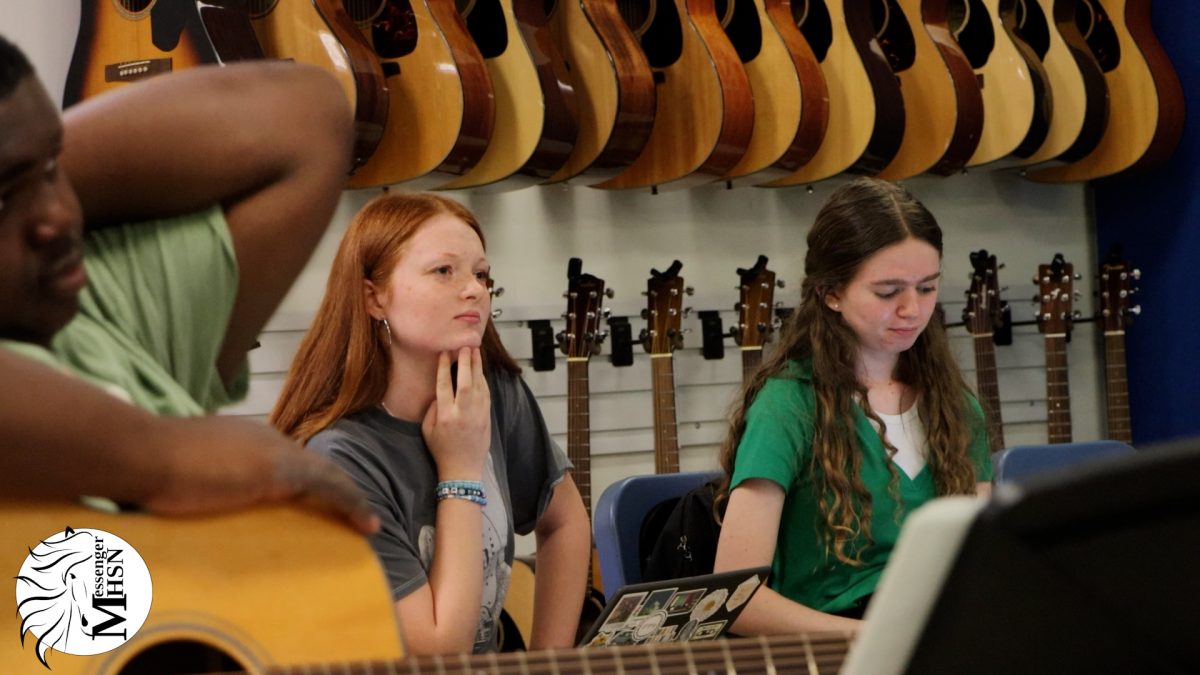Editor’s note: *Indicates source would only agree to be interviewed with the condition of anonymity.
The Trump administration announced it would prevent international students from attending Harvard Unviersity May 22. As a result, Harvard would be blocked from enrolling international students, and all international students currently attending the university would have to leave or risk having their visas revoked, according to the New York Times.
Harvard was granted a temporary restraining order, effectively pausing the proceedings of the ban. A hearing between the Department of Homeland Security and Harvard will take place May 29, according to the BBC.
Reaction
Rian Puri (’26), who is not a U.S. citizen, said he was shocked by the news, as “it didn’t seem like something that made sense.”
“They’re fully excluding a whole group of people, which, again, like I have [the class] U.S. History and we talk about all the rights, and it just seems like a very clear violation in some way,” Puri said.
Similarly, Bia Caseiras (’26) said she was disappointed by the Trump administration’s actions toward Harvard.
“I was kind of disgusted, like one thing, and I felt like, really, like, scared for, I guess, like, what this means for, like, the future, what this means for like, international students,” Caseiras said.
Puri said he saw the ban on international students as an escalation of the relationship between Trump and Harvard.
“I knew there was stuff happening, but I didn’t think it would be outright bans,” Puri said. “I thought there may be, like, more difficulties to get in or, yeah, I mean, basically, more hurdles are harder to stay in the U.S afterward, for example, not completely barring them.”
Similarly, University Advisor Anne Richardson said the severity of the ban came as a surprise.
“So it was certainly not something that I had anticipated,” Richardson said. “It is a significant escalation in the disputes between Harvard and the administration.”
Moreover, Emma Lucas (’23), who currently attends Harvard, said the news of the ban on international students was “just as unexpected as it was to the public.”
Lucas, whose father previously worked at the Department of Homeland Security, said he was also surprised by the ban.
“After speaking with him and some of his buddies who worked there, I don’t think they recognize it,” Lucas said.
Jesse*, a current Harvard student and ASL alum, said the Trump administration’s ban on international students aligns with its value of nationalism.
“In an administration like this one who is tried to promote America first values at the expense of all else … and promote like this more like American isolation, it makes sense that he’s trying to go after international students as an example of students who are coming from other countries of the world to America to study,”
Moreover, Jesse said the Trump administration has been attempting to accumulate power, a motivator for challenging universities.
“A key theme of this version of the Trump administration, his second term, has been trying to concentrate power, um, into his executive branch, not even like the general executive, just like his version of the executive branch,” Jesse said. “It’s very easy to see that higher education in the United States, no matter where it is, has represented a locus of sort of power in the country,
Richardson said the inconsistency of the Trump administration’s actions has been a pattern since his inauguration.
“This is something that we’ve been dealing with sort of ever since January, is that things just change from day to day,” Richardson said. “What happens one day can be reversed the next day or the next week. And we’ve just seen that with this Department of Education story … This is the kind of whiplash that has been happening.”
Value of international students
Sophia Ahmad (’25) said international students offer diverse experiences to educational communities.
“In order to have a good education and, like, a good, like, good amount of opportunities, you need to be able to have different perspectives and viewpoints,” Ahmad said. “You can’t have that if you’re taking away
literally, all different kinds of opinions that people have, and just like, having one group of people.”
Similarly, Caseiras said international students bring an abundance of experiences to academic environments.
“It’s a really important part of like any institution to be able to have, like, a diverse student body and like a somebody that has perspective from like, you know, like everywhere in the world,” Caseiras said. “It adds like, a really important like aspect to learning … because everyone can approach things into a different lens.”
Moreover, Puri said diversity is considered to be a significant part of an institution’s values.
“Recently, diversity has become a very important thing to a lot of people, making sure that you have, like, diversity reports and you have good statistics,” Puri said. “Lots of universities are talking about that.”
Ahmad said since university is “where your life begins,” it is critical students have access to an “international environment” where they can “explore.”
Jesse said the benefits international students bring to Harvard are universally applicable and valuable to other educational environments.
“International students bring the world to Harvard,” Jesse said. “But also, this is not unique to Harvard, right? This is any university that admits international students, having greater diversity of viewpoints, having greater diversity of backgrounds, is something that any institution should strive for.”
At ASL
Richardson said the university advising team has already “checked on” all students who are enrolled or applying to enroll at Harvard.
Furthermore, Richardson said the university advisors have been monitoring the situation and have advised international students to take precautions.
“The students that are mostly affected are the students who want to study in the United States, who have earned places at the United States, who need visas,” Richardson said. “Those are the students that are going to be mostly affected at the moment, and this is something that we’ve been very careful to message about for the past couple of weeks. I mean, if you look back in the weekly bulletin we’ve been messaging about visas, we had a meeting, about all of this, about checking your social media for weeks because we’ve kind of anticipated that this will happen.”
Puri said he began considering the implications of being an international student early on in his university application process, including during college tours.
“There’s a lot of tension that’s been going on, even like just traveling to the U.S., my parents made sure that we, like, deleted any social media apps where we talked about Trump, just in case that border security has a lot of tension,” Puri said.
Additionally, Richardson said the university advising team has been counselling students to be aware of how their prospective universities have been interacting with the federal government.
“The juniors have heard us all say to them that they’ve got a very conscious of what is happening in the U.S. both, in terms of what is happening in the state that any institution that they’re interested in is located in, and also what’s happening, you know, nationally, in terms of universities being impacted by the defunding of the Department of Education,” Richardson said.
Puri said he fears the ban on Harvard could mark a precedent for other schools.
“I’m just worried that, like, what could happen to any other school as well, depending on whoever … Trump either doesn’t like or if Trump just decides to make a more drastic change,” Puri said. “The U.S. is looking less and less like an option. Like, the U.K. is looking much more appealing.”
Furthermore, Puri said he has been prompted to reconsider his plans for higher education.
“It’ll change my whole future plans, like, I’ve done a lot of prep, paid, money for stuff and now it’s not going to work out which I feel like will rob me of a lot of stuff and then I’ll have to basically change my perspective, focus on different things.”
At Harvard
Lucas said the Trump administration’s relationship with Harvard has affected the student body significantly.
“It’s been extremely disruptive, and I would say more so than a lot of other events on campus,” Lucas said. “With all the media coverage, news outlets, helicopters flying overhead, kids not knowing whether, you know, they’ll be able to come to class one day.”
However, Lucas said she experiences a “weird edge case,” as she understands elements of the international student experience without being under federal persecution.
“I am a U.S. passport holder, but at the same time, I’m technically an international student on an administrative level,” Lucas said. “I’m also not the one who’s under target from Trump’s administration.”
Jesse said both American and non-American students were upset by the administration’s actions against international students.
“The student body of Harvard, there was a lot of frustration and anger with the federal government’s like, initial decision to bar international students from enrolling and returning again,” Jesse said. “Because, just like me, I’m pretty sure every single Harvard student has international friends or friends that would be barred from attending campus again.”
Lucas said international students are experiencing a “feeling of frustration” due to the situation.
“They’re caught between the middle of two administrations, one federal and one university, and they really can’t do anything about it,” Lucas said. “There is an overwhelming sense of powerlessness.”
Jesse said while many students feel upset at the risk of being forced to leave Harvard, optimism remains.
“For many people, like, getting into Harvard and like, being able to study at Harvard is a very great privilege,” Jesse said. “So amongst the international students, there’s a lot of, I guess there was, like more fear, but I think they still, they’re still hopeful, I guess, right? Like, at this point, you can really just hope.”
Lucas said the absence of international students will have an adverse financial effect on Harvard.
“It’s a huge part of the financial underpinning of the school, because they don’t qualify for the same like federal aid,” Lucas said. “The university would lose a ton of funding.”
On a cultural level, Lucas said international students comprise many student organizations and have a prominent role on campus.
“A lot of my friends are just American, and I think them meeting me and me, meeting them, has done a lot to learn about other people,” Lucas said. “That’s why you go to college.”
Jesse said international students create a global community at Harvard, and deserve their enrollment.
“Harvard is located in America, but America is located in the world,” Jesse said. “Having those perspectives is very, very important for students studying any subject. And also there’s, like, these are students that, like, have worked incredibly hard in their home countries, as every Harvard student has.”
Furthermore, Lucas said international students contribute to a well-rounded academic experience.
“At the graduate level, a lot of graduate school students are international,” Lucas said. “ I can speak about the School of Public Policy, or the design school, which I’m in, which is a lot of international students. And I really can’t imagine some of my classes without that, like, international perspective.”
Lucas said the student body is grateful for Harvard’s opposition to the Trump administration’s actions.
“I’m so pleased that they are taking action, and they really are taking the side of the students and making people feel as supportive as they can in such a time of confusion,” Lucas said.
Jesse said they are proud Harvard is taking a stand for their values of student voice and institutional independence.
“What the Trump administration has been doing is unconstitutional, trying to limit the free speech of students and professors, and faculty at the universities,” Jesse said. “I’m really proud to be part of a university that, or an institution that has that as one of its goals, to protect freedom of speech and freedom of opinion amongst everyone in higher education.”
Moreover, Lucas said the university has remained communicative throughout the situation.
“It’s funny, because they’ll email us, and then 10 minutes later, it’ll be on the [New York] Times,” Lucas said. “To have Harvard back us up as students and really feel like we have a protector, I think, is nice.”
Lucas said the ban on international students has radically altered the relationship between the government and higher education, affecting prospective students.
“Even the fact that this has happened in the first place, and that the government has the initiative, or the power to even threaten students, has fundamentally changed the outlook,” Lucas said. “I don’t think a lot of kids are thinking of their best case, even kids applying to college to come to the U.S. and pursue higher education because of the, like, the threat it can pose.”
Ahmad said the prominence of Harvard amplifies the “dystopian” nature of the situation.
“Harvard is such a big institution around the world, and suddenly this, like, huge thing is happening where they’re literally, like, revoking visas of students,” Ahmad said. “It’s insane that, like, this is happening this, like, time where now kids are just getting … their visas revoked because they’re not a U.S. citizen.”
In 2020, Immigration and Customs Enforcement announced international students completing remote coursework as a result of the COVID-19 pandemic would not be able to remain in the U.S. In response, Harvard and the Massachusetts Institute of Technology filed lawsuits and restraining orders against the government, successfully overturning this ban.
Jesse said this serves as “past evidence” for Harvard’s successful opposition to the government.
I’m just kind of hoping that that sort of same behavior will continue again, and the fact that the courts responded very quickly with the temporary injunction as well is like good news,” Jesse said.
Thus, Jesse said the Trump administration’s actions against Harvard is an effort to exert his power over education.
“The reason Trump’s going after universities like Harvard so vehemently, trying to curtail them under whatever guys he’s saying, is because he wants to control universities that have an impact on the United States,” Jesse said. “He wants to be the only one having an impact on the United States. He doesn’t want any other institution that might educate others, that might promote others to go contrary to his beliefs.”
Looking forward:
Lucas said a continuation of the ban would have unjust ramifications for international students.
“Kids work so hard to get into university and a university that promises to not only teach them educate them, but also to grant them education status, and the government’s just going to take that away,” Lucas said.
Caseiras said the ban marks a “scary, tumultuous time” for international students as they rethink their university plans.
“This kind of, like, type of ideologies, kind of, it could spread,” Caseiras said. “I really hope not in like the like this, like the way that it was in Harvard, but I do think that this, like, belief is going to be really harmful.”
Moreover, Richardson said, although she doesn’t believe the impact of the administration’s ban will spread immediately, it is difficult to predict its next actions.
“I don’t think this is something that is going to, you know, spread to all the universities, you know, to certain universities tomorrow,” Richardson said. “In that sense, however, you know, again, the stories and the orders change on a daily basis, and so much of this is, is sort of a wait and see and and then, of course, the courts, you know, will get involved as well. And so we’re in this kind of backwards and forwards situation at the moment.”
Richardson said due to this unpredictability, it is important students consider backup plans when applying to U.S universities.
“I want to emphasize that there are lots and lots of university opportunities for them [international students] outside of the U.S.,” Richardson said. “We have been encouraging students who are looking primarily at the U.S., to have a plan B, a plan C, a plan D. You know, Canada is a plan B. The UK can be a plan B. There are a growing number of amazing programs in English being offered all over Europe.”
Ahmad said she is afraid to go to her university in the U.S. due to the Trump administrations actions against international students.
“It’s really scary going to like that type of environment, and especially with now, like Harvard, like all these kids are getting visas revoked,” Ahmad said. “I don’t think it’ll happen at Columbia, because of how much Columbia is like staying quiet about everything, yeah, but it’s also just scary, like having my last name, being Ahmad. Like being in the U.S. and not being a citizen.”
Nevertheless, Ahmad said if the international student enrollment ban were to spread to other universities, she would be less impacted due to her dual citizenship.
“If, God forbid, something was going to happen, I’d either end up going back to Canada or London, because I’m also a British citizen,” Ahmad said. “For me, it’s okay, but like, thinking about other people who … what if their only citizenship is from like, a third world country or something, they would have to go back.”
Richardson said the university advising team has been monitoring interactions between the Trump administration and higher education, and is here to help students.
“If anybody, parents, guardians, students, anybody, you know, has questions, they should come and ask the University Advising team,” Richardson said. “ASL has an expert University Advising team that has already been on this from January, we have been watching this really closely and advising students accordingly … we are really trying to stay on top of this so that we can support our students and our families.”
Lucas said she hopes the Trump administration will recognize Harvard’s institutional independence.
“Best case again, they just, frankly, leave us alone and leave higher education and separate education from the government, private universities from public institutions,” Lucas said.
Moreover, Puri said he hopes that Harvard’s response will set a clear boundary between private institutions and federal power.
“There are ways to fight back against the president, to make sure that the president isn’t all-powerful,” Puri said. “There are ways to try to mitigate and minimize some of the power that the president has, and I guess it just shows that they do also care about all of this. It’s not just, again, a stat for them.”
Furthermore, Puri said Harvard’s opposition could set a precedent for more universities.
“If a lot of the universities do push back, I feel like that can also make the international students more like, invigorated,” Puri said. “It could galvanize them to go forward and actually fight back against this and maybe try to make more action.”
In regard to Harvard’s lawsuit, Puri said the university winning could serve as a model for international student policy going forward.
“The best case would be that Harvard wins this lawsuit, and it gets this kind of ban, gets taken away, and then also that actually would create some more security for quite a bit of quite a bit in the future for all of these, for international students like me,” Puri said.
Jesse said as the Trump administration continues to exert power on higher education, they are grateful for Harvard advocating for its values.
“I’m very happy that the university has taken a stand against this,” Jesse said. “I’m very happy that my university has basically said we do not agree to have our freedom of speech and freedom of opinion that we foster throughout the years be curtailed like this from a government that’s increasingly becoming more authoritarian.”
This story was originally published on The Standard on May 26, 2025.

